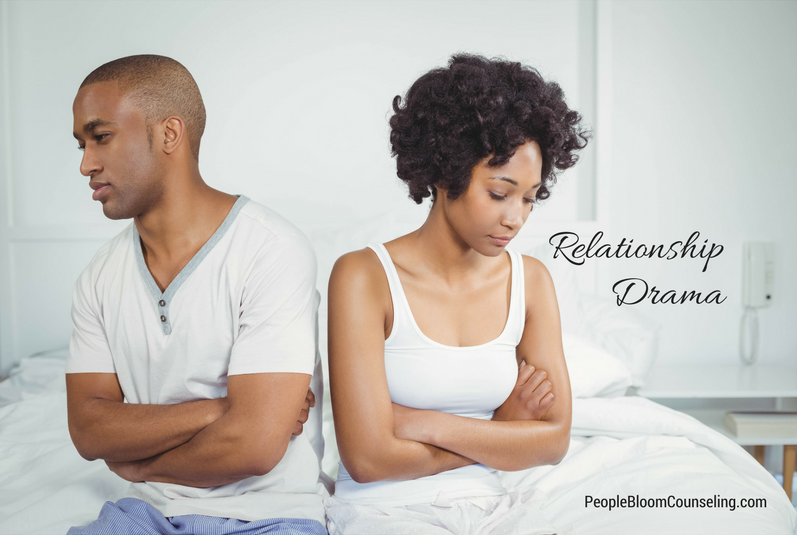WavebreakMediaMicro/stock.adobe.com
When I think about how it might be inappropriate to offer you something, I have your best interest at heart. While it seems mean to say, “No Couples Counseling for you!” (and I would never say it in that way), those words come to mind based on the Soup Nazi espisode in Seinfeld. Stressed but determined, George almost didn’t get his delectable soup the second time around:
Now enough about soup. When is it inappropriate to offer you couples therapy? Borrowing from the traditions of Emotionally Focused Therapy, here are four situations when couples counseling wouldn’t be right for you. If you find yourself in one or more of these situations, don’t lose heart. I’m including resources for you to get help.
Domestic violence
Couples therapy, no matter what form it takes, requires both partners to feel safe and vulnerable with each other. In an abusive relationship where there’s power and control over the intimate partner, it would be inappropriate and risky to ask the abused partner to open up. It is important to note that abuse does not always translate to bruises; rather a partner can feel threatened, degraded and intimated by the other. It’s one thing to dread the next fight because it means you won’t be talking for days; it’s another to be afraid of your partner.
If you’re in an abusive relationship, please consider getting help at LifeWire, New Beginnings, King County Sexual Assault Resource Center, and DAWN.
Substance abuse
If there’s a problematic drug or alcohol use and one or both partners come to sessions high or inebriated, then we need to first of all address the substance abuse. If the addicted partners acknowledge the problem and are willing to get the kind of treatment necessary for their level of use, then couples work can be reconsidered. Together, we can get a sense of how the substance use is impacting the relationship and how relationship dynamics are feeding into the use.
If you need help staying clean and sober, Dafna Chen, MA, LMHC, CDP and Caitlin Vincent, MS, LMFT, CDP are trained Chemical Dependency Professionals and can steer you in the right direction. Dafna provides substance use counseling while Caitlin provides mental health counseling with knowledge and experience in chemical dependency.
Extramarital affairs
As you can imagine, the basic premise of couples counseling is about helping partners feel close again. If there’s an active threat of a 3rd party outside of the relationship, that makes it difficult to build trust and connection. It’s like doing couples therapy when the fire alarm is going off: it just doesn’t work. If there’s an acknowledgement of the affair and a willingness to put an end to it, then we can talk about reestablishing that bond between you and your partner.
And because I don’t keep secrets, I also cannot proceed with couples counseling if your partner asks and you adamantly deny a fling in the history of your relationship. How can either of you trust me if I side with one and keep secrets from the other? In this case, a one-off individual session is often necessary to help determine what you really want happen in your relationship.
On a slightly different note, if you find it difficult to end an affair or feel a lot of shame around compulsive sexual behaviors, Sam Louie, MA, LMHC, CDPT, S-PSB can help. Sam is a specialist in problematic sexual behaviors and he can bring you out of this secret life and onto the path of recovery.
Separating couples
It goes without saying that if one of you is no longer invested in the relationship and want out, then couples counseling is not right for you. However, if you want couples therapy to help you get along better as you plan on separating, Emotionally Focused Therapy is very appropriate. I can help you notice what went wrong in your relationship and how to relate more healthfully as ex-partners.
If you’re not sure whether you’d want to stay together, discernment counseling might be more suitable for you. Discernment counseling is short-term counseling designed to help you and your partner decide whether to save or move on from your marriage. Some local discernment counselors include Mary Kelleher, MS, LMFT, PhD, Liz Hunter, MA, LMFTA, and Brittany Steffen, MS, LMFT. Mary, Liz and Brittany can help you and your partner understand what contributed to your problems and find clarity on how to proceed.
When couples counseling is appropriate
For couples who are committed but struggling to make their relationship work, Emotionally Focused Therapy can help you become more available, responsive and engaged with your partner. I sometimes consider couples who do life with each other day in and day out and how much more enjoyable life would be if their interactions were not colored by anxiety and anger, criticism and defensiveness. Let me know if you’d want life to be different.
Ada Pang is the proud owner of People Bloom Counseling, a Redmond psychotherapy practice in WA. She helps unhappy couples find safety and connection in their relationship. She also helps cancer thrivers and their caregivers integrate cancer into their life stories. When she’s not working or thinking about work, she loves connecting with her husband over sushi, movies and upcoming, a road trip to UT! Stay tune for more tales about their relationship on the road! (Husband is embarrassed and hides).




















